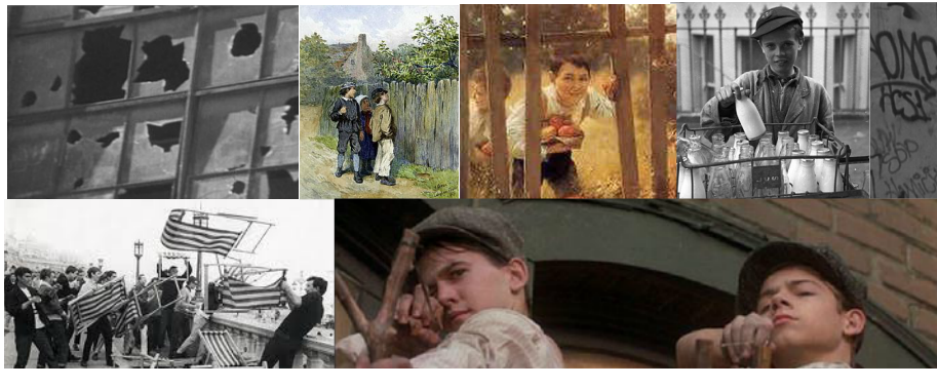- Home
- Site Index
- About Me
-
My Books
- Book List & Themes
- Strictly for Adults Novels >
-
Tales from Portlaw
>
- No Need to Look for Love
- 'The Love Quartet' >
-
The Priest's Calling Card
>
- Chapter One - The Irish Custom
- Chapter Two - Patrick Duffy's Family Background
- Chapter Three - Patrick Duffy Junior's Vocation to Priesthood
- Chapter Four - The first years of the priesthood
- Chapter Five - Father Patrick Duffy in Seattle
- Chapter Six - Father Patrick Duffy, Portlaw Priest
- Chapter Seven - Patrick Duffy Priest Power
- Chapter Eight - Patrick Duffy Groundless Gossip
- Chapter Nine - Monsignor Duffy of Portlaw
- Chapter Ten - The Portlaw Inheritance of Patrick Duffy
- Bigger and Better >
- The Oldest Woman in the World >
-
Sean and Sarah
>
- Chapter 1 - 'Return of the Prodigal Son'
- Chapter 2 - 'The early years of sweet innocence in Portlaw'
- Chapter 3 - 'The Separation'
- Chapter 4 - 'Separation and Betrayal'
- Chapter 5 - 'Portlaw to Manchester'
- Chapter 6 - 'Salford Choices'
- Chapter 7 - 'Life inside Prison'
- Chapter 8 - 'The Aylesbury Pilgrimage'
- Chapter 9 - Sean's interest in stone masonary'
- Chapter 10 - 'Sean's and Tony's Partnership'
- Chapter 11 - 'Return of the Prodigal Son'
- The Alternative Christmas Party >
-
The Life of Liam Lafferty
>
- Chapter One: ' Liam Lafferty is born'
- Chapter Two : 'The Baptism of Liam Lafferty'
- Chapter Three: 'The early years of Liam Lafferty'
- Chapter Four : Early Manhood
- Chapter Five : Ned's Secret Past
- Chapter Six : Courtship and Marriage
- Chapter Seven : Liam and Trish marry
- Chapter Eight : Farley meets Ned
- Chapter Nine : 'Ned comes clean to Farley'
- Chapter Ten : Tragedy hits the family
- Chapter Eleven : The future is brighter
-
The life and times of Joe Walsh
>
- Chapter One : 'The marriage of Margaret Mawd and Thomas Walsh’
- Chapter Two 'The birth of Joe Walsh'
- Chapter Three 'Marriage breakup and betrayal'
- Chapter Four: ' The Walsh family breakup'
- Chapter Five : ' Liverpool Lodgings'
- Chapter Six: ' Settled times are established and tested'
- Chapter Seven : 'Haworth is heaven is a place on earth'
- Chapter Eight: 'Coming out'
- Chapter Nine: Portlaw revenge
- Chapter Ten: ' The murder trial of Paddy Groggy'
- Chapter Eleven: 'New beginnings'
-
The Woman Who Hated Christmas
>
- Chapter One: 'The Christmas Enigma'
- Chapter Two: ' The Breakup of Beth's Family''
- Chapter Three: From Teenager to Adulthood.'
- Chapter Four: 'The Mills of West Yorkshire.'
- Chapter Five: 'Harrison Garner Showdown.'
- Chapter Six : 'The Christmas Dance'
- Chapter Seven : 'The ballot for Shop Steward.'
- Chapter Eight: ' Leaving the Mill'
- Chapter Ten: ' Beth buries her Ghosts'
- Chapter Eleven: Beth and Dermot start off married life in Galway.
- Chapter Twelve: The Twin Tragedy of Christmas, 1992.'
- Chapter Thirteen: 'The Christmas star returns'
- Chapter Fourteen: ' Beth's future in Portlaw'
-
The Last Dance
>
- Chapter One - ‘Nancy Swales becomes the Widow Swales’
- Chapter Two ‘The secret night life of Widow Swales’
- Chapter Three ‘Meeting Richard again’
- Chapter Four ‘Clancy’s Ballroom: March 1961’
- Chapter Five ‘The All Ireland Dancing Rounds’
- Chapter Six ‘James Mountford’
- Chapter Seven ‘The All Ireland Ballroom Latin American Dance Final.’
- Chapter Eight ‘The Final Arrives’
- Chapter Nine: 'Beth in Manchester.'
- 'Two Sisters' >
- Fourteen Days >
-
‘The Postman Always Knocks Twice’
>
- Author's Foreword
- Contents
- Chapter One
- Chapter Two
- Chapter Three
- Chapter Four
- Chapter Five
- Chapter Six
- Chapter Seven
- Chapter Eight
- Chapter Nine
- Chapter Ten
- Chapter Eleven
- Chapter Twelve
- Chapter Thirteen
- Chapter Fourteen
- Chapter Fifteen
- Chapter Sixteen
- Chapter Seventeen
- Chapter Eighteen
- Chapter Nineteen
- Chapter Twenty
- Chapter Twenty-One
- Chapter Twenty-Two
-
Celebrity Contacts
-
Thoughts and Musings
- Bereavement >
- Nature >
-
Bill's Personal Development
>
- What I'd like to be remembered for
- Second Chances
- Roots
- Holidays of Old
- Memorable Moments of Mine
- Cleckheaton Consecration
- Canadian Loves
- Mum's Wisdom
- 'Early life at my Grandparents'
- Family Holidays
- 'Mother /Child Bond'
- Childhood Pain
- The Death of Lady
- 'Soldiering On'
- 'Romantic Holidays'
- 'On the roof'
- Always wear clean shoes
- 'Family Tree'
- The importance of poise
- 'Growing up with grandparents'
- Love & Romance >
- Christian Thoughts, Acts and Words >
- My Wedding
- My Funeral
- Audio Downloads
- My Singing Videos
- Bill's Blog
- Contact Me
'Second Chances'
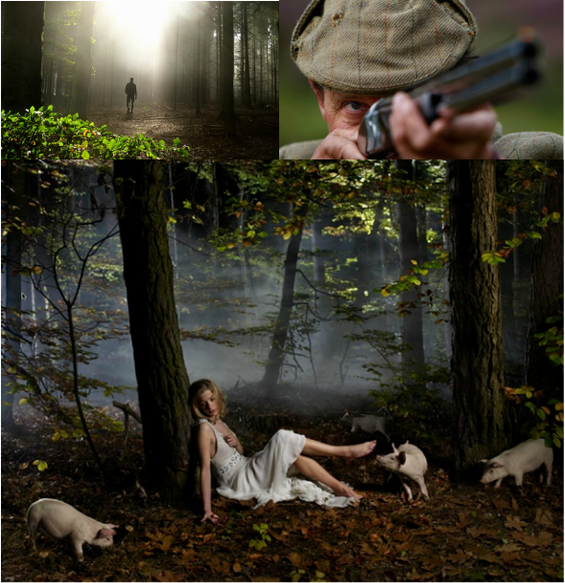
Kirklees Forest, part of which remains located at the junction 25 of the M62 Motorway, is supposed to be the forest where the legendary Robin Hood’s grave lies. In my youth, I spent many a day during the long, school, summer holidays with my friends trying to locate the precise whereabouts of Robin’s grave. I even went there often on my own. It was speculated that Maid Marion's great, great granddaughter still lived in the forest tending to the pigs she kept. We found one or two dead rabbits and the rotted carcass of a fox, but never did manage to get close enough to finding Robin Hood's grave.
Being young lads, we often daydreamed about coming across the most beautiful pig minder ever to grace the wild woods of Kirklees, but all we ever crossed was a loaded shot gun in the hands of a man bent on doing us damage! Every time we entered the forest, before very long we'd come across the game keeper, fully armed with shotgun and pellets. As soon as he saw us, he would fire his gun and we'd be off out of the woods faster than Roger Bannister doing the four-minute mile as we scarpered in fear of our lives; leaving behind all chance of ever seeing the beautiful descendant of Maid Marion who tended the forest pigs. We never knew if he was shooting to hit or just to frighten us off, but as far as we were concerned the blighter was out to kill us stone dead. We never knew then that a hit with pellets wouldn't kill us; merely leave us with a peppered backside as a souvenier.

As a young man, not quite 11 years of age, my heroes of the time were 'Rob Roy', 'Desperate Dan' and 'Robin Hood'. I was a growing child on a new council development called Windybank Estate and would forever be living the lives of these heroes at every opportunity. I was always getting myself into trouble and I must admit that by the age of 11 years, the local police man would be a regular visitor to my house to tell my parents about something wrong I’d recently done.
I was quickly obtaining the reputation of being 'trouble'. The police man's opening line upon having the door opened to his knock would invariably be to inquire, “Where has your Billy been tonight?”
I must have been ‘suspect number one’ on the estate for any thefts that had recently occurred or any unexplained criminal damage caused. If I was lucky, it would be my mother who answered the door when the local policeman visited the house to check on my whereabouts at the time of the crime.
I was quickly obtaining the reputation of being 'trouble'. The police man's opening line upon having the door opened to his knock would invariably be to inquire, “Where has your Billy been tonight?”
I must have been ‘suspect number one’ on the estate for any thefts that had recently occurred or any unexplained criminal damage caused. If I was lucky, it would be my mother who answered the door when the local policeman visited the house to check on my whereabouts at the time of the crime.
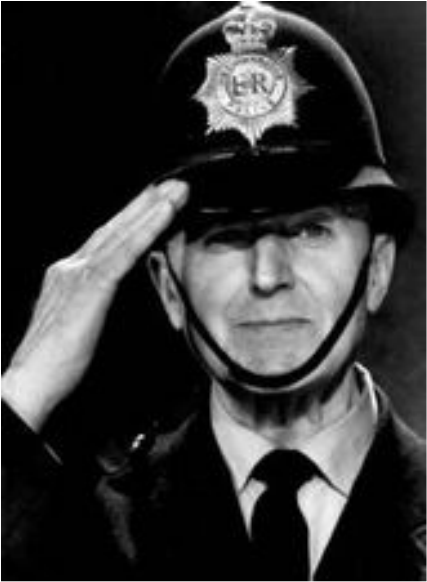
“Hello Mrs Forde,” he would say by way of friendly introduction, having no doubt spoken to mum often and each being well acquainted with the other. “Is your son, Billy, at home and if he is, how long has he been here?”
“He is here,” my mother would reply, and without the slightest knowledge of the nature of the police man’s next enquiries, would automatically add, “and he’s been here all night. He’s been helping me do .......since he came home from school and hasn’t so much as put a foot out of the door. So whatever he’s supposed to have done, he hasn’t, because he’s been here all night. You’ve got the wrong lad this time and my son’s innocent of whatever it is you suspect him of doing!”
My poor mother rarely had an idea of what I'd been up to. To her, I couldn't have been doing anything too serious, even if I had been doing something I shouldn't have been doing. Whatever I had been doing, she believed that every other boisterous boy of my age would have been doing the very same thing that evening also!
“He is here,” my mother would reply, and without the slightest knowledge of the nature of the police man’s next enquiries, would automatically add, “and he’s been here all night. He’s been helping me do .......since he came home from school and hasn’t so much as put a foot out of the door. So whatever he’s supposed to have done, he hasn’t, because he’s been here all night. You’ve got the wrong lad this time and my son’s innocent of whatever it is you suspect him of doing!”
My poor mother rarely had an idea of what I'd been up to. To her, I couldn't have been doing anything too serious, even if I had been doing something I shouldn't have been doing. Whatever I had been doing, she believed that every other boisterous boy of my age would have been doing the very same thing that evening also!
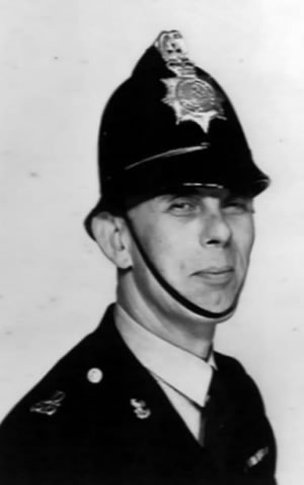
I must confess, that with the exception of a few small thefts from shops, an odd pint stolen off the back of an unattended milk float, a bit of criminal damage caused to someone's property or having been in a street fight with another lad off the estate, I could never have been described as being 'a hardened criminal' or someone from a bad background who was guaranteed to wind up serving a jail sentence in the future. Whatever low level of crime or offence I’d committed, I could always rely upon my mother to provide me with a cast-iron alibi in times of need if she was asked to bear witness regarding my absence or presence at specific times.
On the other hand, I could never expect my strict father to lie for me under any circumstance. He was this 'George Washington' in my life who would never tell an untruth, even were it to kill him or get me locked up, were he not to. If my mother was out when the police man called, no sooner than my dad opened the door to the police man, he would have me stood there in my coat, ready to be handed over to the law of the land. Even before the police man had opened his mouth, my father would say, “What’s our Billy done this time? I don’t know what it is, but whatever it is, take him away and lock him up for the night. That will teach him to keep his hands off other folk’s property and to have more respect for what isn't his!”
On the other hand, I could never expect my strict father to lie for me under any circumstance. He was this 'George Washington' in my life who would never tell an untruth, even were it to kill him or get me locked up, were he not to. If my mother was out when the police man called, no sooner than my dad opened the door to the police man, he would have me stood there in my coat, ready to be handed over to the law of the land. Even before the police man had opened his mouth, my father would say, “What’s our Billy done this time? I don’t know what it is, but whatever it is, take him away and lock him up for the night. That will teach him to keep his hands off other folk’s property and to have more respect for what isn't his!”
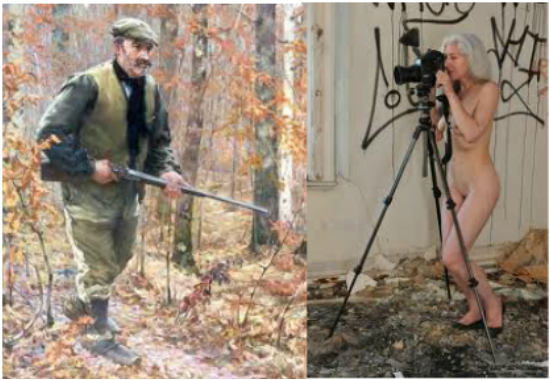
Needless to say, in later years, my father was greatly amused to discover that I’d become a Probation Officer, saying, “It takes a thief to catch a thief!” My mother, who'd always had implicit faith in me turning out alright, asserted that even poachers can become gamekeepers and turn their lives around. She also reminded my father during my earlier years that I would one day make good and do them proud.
And after I'd grown up and had made good for myself, she again reminded my dad, which parent had been primarily responsible for how I'd turned out! She even argued that if she had not provided me with all those alibis in my early years, then I’d have had a criminal record as long as a beggar's arm now and I’d never have been accepted as a Probation Officer, or obtained any other job of trust for that matter!
An old retired teacher and long-term neighbour called Mrs Spivy, who lived immediately across the road from me, would always return my ball whenever it had been accidently kicked into her garden. She would not however, return the ball of any other boy or girl whenever theirs strayed over her hedge from the road.
One day, I asked her why she favoured me as opposed to all my friends I played with on the estate and she replied,
"Because I loved my husband, Billy Forde, and when he was alive and saw you playing ball outside our house, he always said, 'Mark my word, that boy will turn out okay. If you must know, that's why you get your ball back and the others do not. It's out of respect for his memory. If he believed you will turn out okay, than so do I. His judgement on people was never wrong!"
And after I'd grown up and had made good for myself, she again reminded my dad, which parent had been primarily responsible for how I'd turned out! She even argued that if she had not provided me with all those alibis in my early years, then I’d have had a criminal record as long as a beggar's arm now and I’d never have been accepted as a Probation Officer, or obtained any other job of trust for that matter!
An old retired teacher and long-term neighbour called Mrs Spivy, who lived immediately across the road from me, would always return my ball whenever it had been accidently kicked into her garden. She would not however, return the ball of any other boy or girl whenever theirs strayed over her hedge from the road.
One day, I asked her why she favoured me as opposed to all my friends I played with on the estate and she replied,
"Because I loved my husband, Billy Forde, and when he was alive and saw you playing ball outside our house, he always said, 'Mark my word, that boy will turn out okay. If you must know, that's why you get your ball back and the others do not. It's out of respect for his memory. If he believed you will turn out okay, than so do I. His judgement on people was never wrong!"
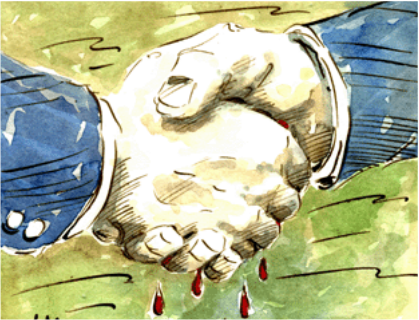
From my many escapades, one of the few for which I got caught was when I was three months off my 12th birthday. At that time, my best friend was a boy called Peter Lockwood (whose recent death got me thinking about this offence of my youth). We were very close friends and, like the closest of friends in our gang, we had already become 'blood brothers' by the mingling of our blood from small cuts to our wrists with an old rusty penknife from my father's shed. In our gang, such comradely allegiance commanded the highest sign of loyalty one could possibly make. Peter had an older sister who was engaged to be married. As Peter’s household was well off and ours was comparatively poor, I was frequently invited to tea at his home. His parents treated me very kindly and trusted me implicitly as being ‘a good boy who was suitable for their son to play and associate with’.

On the week in question, an 11-year-old bonny-looking girl from school called Winifred Healey had told me that ‘she wanted to go with me’. In those days ‘to go with’ a boy or girl didn’t necessarily imply any physical involvement between the parties. It was no more than a verbal declaration of pure intent; simply a way of telling the others at school, ’hands off because he/she is mine, and one day when we’re older, we will get engaged, marry and shall wear matching gold wedding rings'.
One should remember the seriousness of such youthful declarations then. These were the days when a male having second thoughts about their engagement could have been taken before the highest court in the land for ‘Breach of Promise’. Consequently, a chap did not publicly declare ‘to go with’ another lightly without possible risk of future bankruptcy!
One should remember the seriousness of such youthful declarations then. These were the days when a male having second thoughts about their engagement could have been taken before the highest court in the land for ‘Breach of Promise’. Consequently, a chap did not publicly declare ‘to go with’ another lightly without possible risk of future bankruptcy!

Once Winifred told me that she wanted to 'Go with me' and be my girl friend, I naturally fell in love with her with all the intensity that any 11-year-old boy falling in love for the first time could possibly have. I started to imagine being engaged, and then wed to Winifred, the setting up of home together and the parenting of seven children before I was 25-years-old.
Naturally, once Winifred (who subsequently became a nun at the age of 18 years), had said she wanted to ‘go with me’, and thoughts of a someday marriage entered my fuddled brain, I felt that I had to cement the relationship with nothing less than a spectacular gesture. I therefore decided that I would furnish a diamond engagement ring befitting the occasion. I was determined she'd be the only bethrothed girl in St. Patricks Catholic School with a diamond engagement ring on her finger.
Naturally, once Winifred (who subsequently became a nun at the age of 18 years), had said she wanted to ‘go with me’, and thoughts of a someday marriage entered my fuddled brain, I felt that I had to cement the relationship with nothing less than a spectacular gesture. I therefore decided that I would furnish a diamond engagement ring befitting the occasion. I was determined she'd be the only bethrothed girl in St. Patricks Catholic School with a diamond engagement ring on her finger.

If you have ever wanted something you have never had, you sometimes have to do something you have never done! I’d stolen from many an orchard in the summer and had even stolen flowers from gardens and sold them on to neighbours on a different street. I’d also stolen from many a rich man’s shop in town, but I’d never stolen from the home of a friend. Robin Hood would have turned in his grave had he known of the dastardly deed I was prepared to do!
I also knew the punishment I'd face if I was caught stealing in the 1950's. I knew that apart from the hiding I'd receive from my father, my family name would be 'shamed' on Windybank Estate and I'd be shunned by all people respectable. I knew that I'd be branded 'thief' for all to see as the code of the estate decreed, and that all future reference to my family would be commenced by, "You know who I mean, the father/mother/sister/brother of that thief, Billy Forde." Indeed, it wasn't unknown for the estate vigilantes to either seek to get you rehoused or even to make you wear a placard of shame around your neck for a full week after you'd been caught stealing someone else's property on the estate.
I also knew the punishment I'd face if I was caught stealing in the 1950's. I knew that apart from the hiding I'd receive from my father, my family name would be 'shamed' on Windybank Estate and I'd be shunned by all people respectable. I knew that I'd be branded 'thief' for all to see as the code of the estate decreed, and that all future reference to my family would be commenced by, "You know who I mean, the father/mother/sister/brother of that thief, Billy Forde." Indeed, it wasn't unknown for the estate vigilantes to either seek to get you rehoused or even to make you wear a placard of shame around your neck for a full week after you'd been caught stealing someone else's property on the estate.
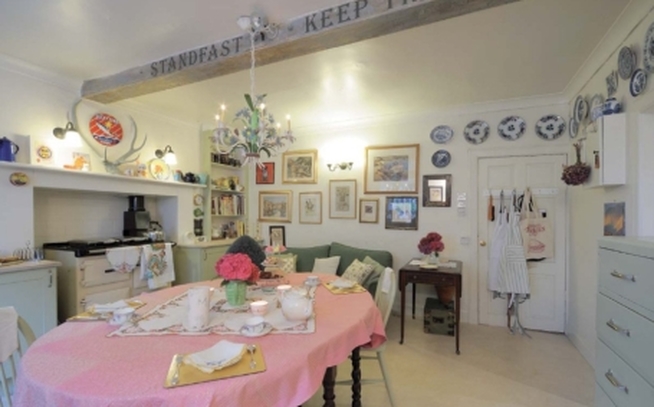
The next time I was invited for tea at my friend Peter Lockwood’s house, I used the opportunity to steal his sister’s engagement ring. Mr and Mrs Lockwood had a really grand house and the teas that Peter's mother served were simply out of this world. After the table had been cleared and everyone else in the household had left the dining room, temptation presented itself and my opportunity arose.
Peter's sister Margaret had taken off her engagement ring and had left it on the table while she washed the crockery in the kitchen. For the next few minutes, the sparkling ring of temptation transfixed my gaze and the only thought that my mind would entertain was, "Winifred will love that sparkler. Give her that tomorrow and she'll love you forever, Billy Forde!"
I therefore stole the object of temptation and proudly gave Margaret Lockwood's engagement ring to Winifred Healey the very next day at school. Mr and Mrs Lockwood naturally informed the police about the theft from their home once their engaged daughter convinced them that she had not lost the ring and that it must have been stolen from the house. They were even prepared to believe that an 'opportunity sneak thief' had brazenly entered their unguarded house unseen sometime during that day when the house was unoccupied, had snatched the ring and left. It wasn’t unusual in the year of 1953/54 for anyone to leave one’s house door unlocked from sunrise until bedtime or to see abandoned bicycles at the roadside or along a country lane awaiting their owner’s return many hours later. These were more trusting years, during which all day surveillance was rarely called for. These were the days of honest folk, days when it was easier pickings for anyone up to no good.
Peter's sister Margaret had taken off her engagement ring and had left it on the table while she washed the crockery in the kitchen. For the next few minutes, the sparkling ring of temptation transfixed my gaze and the only thought that my mind would entertain was, "Winifred will love that sparkler. Give her that tomorrow and she'll love you forever, Billy Forde!"
I therefore stole the object of temptation and proudly gave Margaret Lockwood's engagement ring to Winifred Healey the very next day at school. Mr and Mrs Lockwood naturally informed the police about the theft from their home once their engaged daughter convinced them that she had not lost the ring and that it must have been stolen from the house. They were even prepared to believe that an 'opportunity sneak thief' had brazenly entered their unguarded house unseen sometime during that day when the house was unoccupied, had snatched the ring and left. It wasn’t unusual in the year of 1953/54 for anyone to leave one’s house door unlocked from sunrise until bedtime or to see abandoned bicycles at the roadside or along a country lane awaiting their owner’s return many hours later. These were more trusting years, during which all day surveillance was rarely called for. These were the days of honest folk, days when it was easier pickings for anyone up to no good.
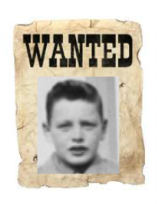
Being the only non-family member visitor to the Lockwoods on the day of the ring's disappearance, and the only boy in my school to have given his 11-year-old girlfriend an 18-carat diamond engagement ring the day after the theft, quickly made me ‘suspect number one’ on the country's criminal hit list. Before too long, an all points bulletin had been put out on me by the local police to bring me in at all cost, whatever alibi my mother might provide to the contrary to the local bobby when interviewed about the matter.
When I eventually confessed to the theft and the policeman asked me to hand him the engagement ring to return to its owner, I had to then tell him that I'd thrown it out the window into the back garden when I saw him approaching our house! A few hours later and the engagement ring was back on the finger of its owner.
When I eventually confessed to the theft and the policeman asked me to hand him the engagement ring to return to its owner, I had to then tell him that I'd thrown it out the window into the back garden when I saw him approaching our house! A few hours later and the engagement ring was back on the finger of its owner.

Hearts are fickle things. They are like parachutes in many respects; deadly when closed and working best when they are open. However, the heart shows its unique contribution to the cause of humanity by allowing feelings to matter as much as logic. They not only supply the body with the necessary supply of oxygenated blood to keep one alive; a heart is crucial to the sustenance of the soul and assists in the moral arbitration of right and wrong where both law and common sense are in conflict. A heart is in effect, a parachute without strings; something that helps to keep one safely grounded without the need to judge or moralise.
Mr and Mrs Lockwood never closed their hearts towards me. They never stopped holding me in their affection or believing that my theft had been no more than a momentary slip of character by a romantic boy who wanted to impress his school girlfriend. They continued to believe that I’d come out okay in the wash.
While others may have viewed this juncture in my life and the episode of theft as representing 'the end of the road' for me, to the Lockwoods, it was just one more opportunity for them to offer me 'a second chance'. They instantly forgave me and allowed me to continue being their son’s best friend. They still invited me for tea at their house at least twice a week thereafter. In fact, it is partly down to them and a local greengrocer on the estate where I lived called Mr Northrop, that I went on to become a Probation Officer and to eventually stop stealing.
Peter Lockwood’s sister later broke off her engagement with her fiance. It seemed to me restrospectively that my act of theft had given her 'second thoughts' about the prospects of her intended marriage. I've often wondered in adult life whether or not her marriage to her fiance would have been happy or sad had it gone ahead? Who knows if my act of theft had stolen from her future, 'unknown sadness' or 'untold happiness' had she wed her first intended? Had I been her divine saviour or a presenter of permanent regret?

Now that I have told you a bit about my murky past, perhaps you won’t think so well of me as you initially did. Even at the age of 11 years, the ‘romantic’ in me was struggling to get out of my youthful body. Anyone who went to the same school as me will still remember the 11-year-old boy who wanted to impress his 11-year-old girlfriend by stealing an engagement ring to place on her finger; a ring which hadn't been purchased at Woolworths for the price of sixpence.
My life as a light-fingered boy on Windybank Estate was curtailed between the ages 11 to 14 years, largely because of an accident I incurred when a lorry ran over me and left me unable to walk for a few years. When I eventually found my legs again, my thefts from shops gradually continued. I was back to stealing once more and I still had an eye for a juicy red apple whether it was perched on a tree branch or in a green grocer's box!
My life as a light-fingered boy on Windybank Estate was curtailed between the ages 11 to 14 years, largely because of an accident I incurred when a lorry ran over me and left me unable to walk for a few years. When I eventually found my legs again, my thefts from shops gradually continued. I was back to stealing once more and I still had an eye for a juicy red apple whether it was perched on a tree branch or in a green grocer's box!

I was six months short of my 15th birthday when I stole an apple from the fruit crates that were placed outside the greengrocer’s shop on Fourth Avenue, Windybank Estate. As I ran off laughing, the shop owner, Mr Northrop, saw me and yelled, “I’ve seen you, Billy Forde. Wait ‘til I see your parents. You’ll be for it then, lad!”
Being a strict parent, I knew that my father would wallop me once the greengrocer had informed him of my theft from his shop. To my surprise nothing happened that week, and it was only when I saw Mr. Northrop walking towards our front door the following week that I feared that ‘my cards were truly marked’.
As fate would have it, my father was at home at the time ready to receive the greengrocer at our door. Upon seeing Mr Northrop in the kitchen my dad said, “What’s up now? What’s Billy done this time?”
Being a strict parent, I knew that my father would wallop me once the greengrocer had informed him of my theft from his shop. To my surprise nothing happened that week, and it was only when I saw Mr. Northrop walking towards our front door the following week that I feared that ‘my cards were truly marked’.
As fate would have it, my father was at home at the time ready to receive the greengrocer at our door. Upon seeing Mr Northrop in the kitchen my dad said, “What’s up now? What’s Billy done this time?”

As I waited for the sky to collapse around me and to feel the presence of my father’s heavy hand upon the rear end of my person, the gently-spoken greengrocer simply said, “There’s nothing wrong, Mr Forde. I’ve just come to enquire if your Billy wants a Saturday morning job in the shop, weighing potatoes out? His mum asked me last week if I could give him a job to keep him out of trouble and earn him a few bob. I've four-hours work every Saturday morning and I’ll pay him two shillings and sixpence to start with for a morning's work, if he wants it.”
Before anyone, least of all myself had chance to think of it, my father replied, "He'll take it. Thank you Mr Northrop."
Little had I known, but a few days after I'd been seen by Mr Northrop stealing apples from a crate outside his grocer's shop, my mother decided to ask him if he had a Saturday morning for me, to keep me out of mischief. Mr Northropdidn't say anything about my apple theft to my mother, but instead said,' I'll give the matter some thought and let you know, Mrs Forde'.
Before anyone, least of all myself had chance to think of it, my father replied, "He'll take it. Thank you Mr Northrop."
Little had I known, but a few days after I'd been seen by Mr Northrop stealing apples from a crate outside his grocer's shop, my mother decided to ask him if he had a Saturday morning for me, to keep me out of mischief. Mr Northropdidn't say anything about my apple theft to my mother, but instead said,' I'll give the matter some thought and let you know, Mrs Forde'.
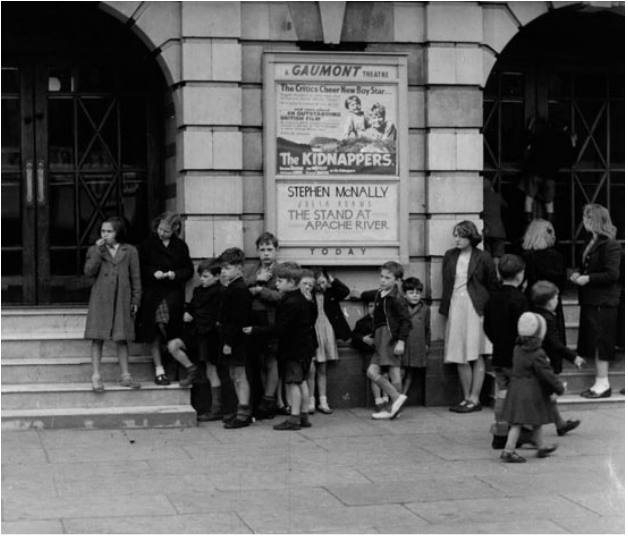
Although I was gobsmacked at the offer and had expected to have been for the high jump once my theft had been revealed, my initial sense of relief was slightly marred. To tell the truth, I didn’t want a Saturday morning job.
I'd just spent a couple of years being unable to walk after a lorry had run over me, necessitating nine months' hospitalisation, and then going back and forth to the hospital regularly for further treatment. Also, Saturday morning was when the boys went to the matinee in Cleckheaton. That was one’s best chance of the week of meeting the girl of one’s dreams when the interval lights came on and the ice cream woman sold her wares at the front of the aisle.
I'd just spent a couple of years being unable to walk after a lorry had run over me, necessitating nine months' hospitalisation, and then going back and forth to the hospital regularly for further treatment. Also, Saturday morning was when the boys went to the matinee in Cleckheaton. That was one’s best chance of the week of meeting the girl of one’s dreams when the interval lights came on and the ice cream woman sold her wares at the front of the aisle.

For the next three years I worked in Mr Northrop’s greengrocer's shop thanks to my father having agreed a contract of employment on my behalf. Even when I got a full-time mill job six months later, my father still expected me to retain both jobs. I also had a firewood round and I managed a paper round on Sunday mornings before I went to church. I swear that if I hadn’t had to set off for my mill job at 6.30am, Monday to Friday, that dad would have also have had me doing the early morning milk round to help out with supplementing the household income!
In order to save on 'unnecessary' bus fare, I would walk the four-mile return journey to my mill job daily, whatever the weather. I knew that if I was prepared to trespass across two farmers' fields on my way to work down the New Road that I could trim off over half a mile's walk each way and get to the mill near Littletown every day on time to clock in. Clock in one minute late and you lost fifteen minute's wage. If your lateness extended to five minutes, you lost thirty minutes wage. Any later than five minutes and you were sent back home for a day's loss of labour.
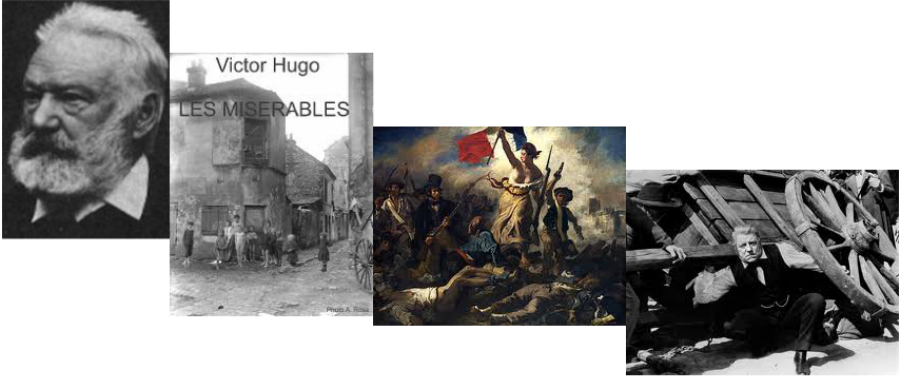
My three years with Mr Northrop were good ones and I came to deeply respect this good man who had first seen the good in me and who'd then been prepared to give me a 'second chance'. In the years since he has died, I never go a single day without saying a 'thank you' prayer on his behalf. At a time when I most needed a 'second chance’, like the Lockwoods before him, he gave me one.
While I happily weighed half-stone bags of spuds in the back of the shop during the first year, Mr Northrop, along with an 18-year-old full-time shop assistant would serve the customers at the front of store. The lad who was the full-time assistant had worked for Mr Northrop for over three years before I'd started there; a fact he never allowed me to forget. It seemed vital to his own 'sense of importance' that I should on all occasions, remain in my Cinderella place at the back of the shop 'out of sight' while he continued to joke loudly, laugh and fraternise with the shop customers out front. He would forever remind me to keep doing that which I'd been paid to do; namely weigh spuds at the back of shop and keep out of the front.
Whenever there wasn't anything for me to do, I would use the opportunity to read. It was during this three-year period at the green grocer's shop that I first read Victor Hugo's 'Les Miserable'; a story about the thief Jean Valjean who got his 'second chance' in life and made good use of it. This was a story that resonated with me, one that was to have a profound impression on me thereafter and eventually steer me towards a career as a Probation Officer in my thirtieth year of life.
While I happily weighed half-stone bags of spuds in the back of the shop during the first year, Mr Northrop, along with an 18-year-old full-time shop assistant would serve the customers at the front of store. The lad who was the full-time assistant had worked for Mr Northrop for over three years before I'd started there; a fact he never allowed me to forget. It seemed vital to his own 'sense of importance' that I should on all occasions, remain in my Cinderella place at the back of the shop 'out of sight' while he continued to joke loudly, laugh and fraternise with the shop customers out front. He would forever remind me to keep doing that which I'd been paid to do; namely weigh spuds at the back of shop and keep out of the front.
Whenever there wasn't anything for me to do, I would use the opportunity to read. It was during this three-year period at the green grocer's shop that I first read Victor Hugo's 'Les Miserable'; a story about the thief Jean Valjean who got his 'second chance' in life and made good use of it. This was a story that resonated with me, one that was to have a profound impression on me thereafter and eventually steer me towards a career as a Probation Officer in my thirtieth year of life.
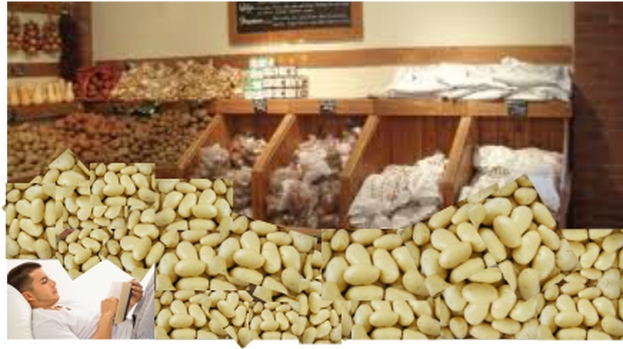
During my second year of Saturday mornings, Mr Northrop had learned from some customer on the estate that I’d passed my 11-plus exam for the grammar school in Heckmondwike four years earlier, but had declined to take up my place. Sensing that I loved reading, writing and had a good head for arithmetic, Mr Northrop would occasionally allow me to serve behind the counter and go into the till. The full-time grocer’s lad did not like this development one little bit and made his feelings known to me; especially as I’d stolen apples from his employer in the past before I’d been given Saturday morning work there.
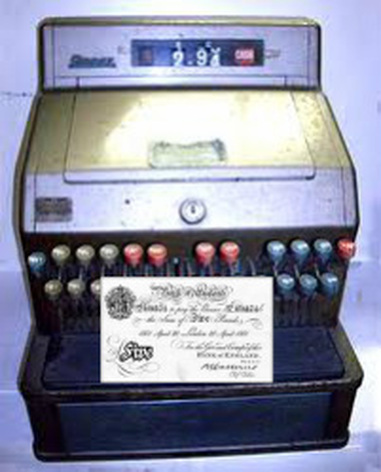
By my third year of Saturday morning work, I was weighing potatoes and serving the customers in between. On one Saturday, the till was £5 short at the end of the day. I was only informed of this by Mr Northrop the following Saturday morning when I came into the shop to commence my morning's work. I was still allowed to serve at the till. I then found out the following Saturday, that after I’d left the shop the previous Saturday at 12.30 pm, an afternoon tally of the till contents revealed it to be short by another £5. Within a two week period, the till had twice been £5 short at the end of the day.
“I have to ask you, Billy, just as I have asked.............Did you take the money, lad? If you did, just own up to it and I’ll leave the matter there and we’ll call it a day,” Mr Northrop asked.
“No, I didn’t! The last thing I ever stole was the apple from the crate outside your shop when you saw me. I’ve never taken another thing since that day, from anyone!” I replied. As I spoke, I feared that I would not be believed with my track record for dishonesty.
“That’s okay then, Billy. Sorry, but I had to ask you. I also had to ask............. and he’s worked here over six years,” Mr Northrop continued to explain, so please don't take it personally."
“I have to ask you, Billy, just as I have asked.............Did you take the money, lad? If you did, just own up to it and I’ll leave the matter there and we’ll call it a day,” Mr Northrop asked.
“No, I didn’t! The last thing I ever stole was the apple from the crate outside your shop when you saw me. I’ve never taken another thing since that day, from anyone!” I replied. As I spoke, I feared that I would not be believed with my track record for dishonesty.
“That’s okay then, Billy. Sorry, but I had to ask you. I also had to ask............. and he’s worked here over six years,” Mr Northrop continued to explain, so please don't take it personally."

After those two thefts, I must confess to having felt extremely uncomfortable each time I went into the till at the shop. ’Once a thief, always a thief’ was a well known saying of the times that plagued my mind for many months thereafter.
I had planned to leave my Saturday morning job with Mr Northrop around the time that the thefts of the two £5 notes had occurred, but then initially postponed the matter; thinking that my instant absence might be viewed suspiciously and wrongly construed by some who'd heard about the thefts on the gossip grapevine.
When I did leave my Saturday morning job some three months later, Mr Northrop gave me a month’s wages in my final wage packet instead of the four shillings that I was due for that week. “Good luck, Billy,” he said as he waved me off after my final shop shift had ended at noon that day.
I had planned to leave my Saturday morning job with Mr Northrop around the time that the thefts of the two £5 notes had occurred, but then initially postponed the matter; thinking that my instant absence might be viewed suspiciously and wrongly construed by some who'd heard about the thefts on the gossip grapevine.
When I did leave my Saturday morning job some three months later, Mr Northrop gave me a month’s wages in my final wage packet instead of the four shillings that I was due for that week. “Good luck, Billy,” he said as he waved me off after my final shop shift had ended at noon that day.

“Bye, Mr Northrop,” I replied with a tear in my eye. “Thanks for giving me a ‘second chance’ where others wouldn’t have done. I never stole those £5 notes from your till; honest, I didn’t!”
“I know you didn’t, lad!” he smilingly replied. “I know you didn’t!”
“I know you didn’t, lad!” he smilingly replied. “I know you didn’t!”
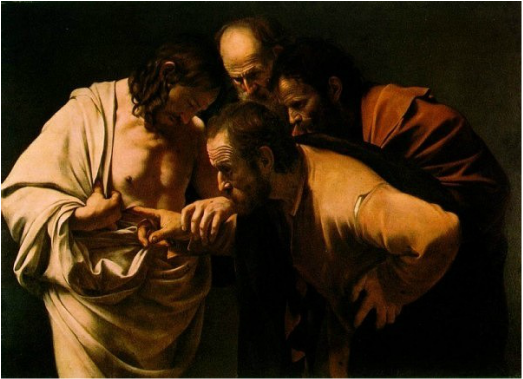
His implicit faith in my honesty was a treasured moment for me to hold on to for the rest of my life. Given my previous track record for dishonesty, even my own father would have probably doubted my word at the time of the £5 note thefts, but not this gentle greengrocer. He was a man who was wise beyond his years and trusting beyond any standard of basic humanity and level of compassion I'd previously known. He believed that no person is wholly faultless. He was wise enough to know that to proclaim that a person has no fault, is to say that ‘the earth has never touched them’, yet Mr Northrop possessed the insight to know that the only way to build a relationship is based on mutual trust. He also displayed the capacity of being able to leave two or three things unsaid that occasionally spring to mind during moments of natural doubt.
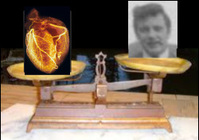
Despite circumstantial evidence pointing to the probability that I’d stolen from him again after he’d invested his trust in me, he neverthless refused to let his head rule his heart. He genuinely believed that when the heart is right, no matter which way the head lies, the heart has reasons which reason knows nothing of!

Three months after I’d given up my job at the greengrocer’s shop, Mr Northrop, who’d all along suspected his full-time shop assistant as having stolen from his till, caught him stealing more money from the till and sacked him on the spot. The thefts had apparently continued after I’d left, but for lesser amounts which were harder to verify. Consequently, the gentle greengrocer set a trap for his young shop assistant.
Although he sacked the thieving employee, Mr Northrop refused to press charges against him. He was in effect giving him a ‘second chance’ also.
In years to come, towards the end of my Probation Officer career I’d started writing books and had become an established published author. One of my most popular books was entitled, ‘Sleezy the Fox’. It is a story about 'second chances', which along with my ‘Douglas the Dragon’ books, were read to Princes, William and Harry, by their late mother, Princess Diana when the boys were seven and nine years old. The Princess had contacted me after hearing about the children's stories with morals that I wrote and requested that I send her some copies. It is refreshing for this one-time thief to know that two of his children's books have been read to a future King of England.
When it became known that Prince William and the Duchess of Cambridge were expecting a child of their own, I sent them copies of 'Sleezy the Fox' and 'Douglas the Dragon' to read to their son when Prince George attains the age of seven. Indeed, the publication of over sixty-six books of mine since 1990 has enabled me to give all the book-sale profits of over £200,000 to many charitable causes.
From all the people who have helped me in my life on so many levels, it was the Holy Trinity of Mrs Spivy who believed in me, along with Mr and Mrs Lockwood, and Mr Northrop during my early years to whom I remain forever indebted. All these people gave me a 'second chance' when I most needed it and were entirely responsible for me becoming a Probation Officer in later life. I suppose that the characters of ‘Douglas the Dragon’ and ‘Sleezy the Fox’ merely represented significant parts of my own character in earlier life and the 'second chances' I was fortunate to have received.
Copyright William Forde April, 2012: Updated and revised April, 2018.
Although he sacked the thieving employee, Mr Northrop refused to press charges against him. He was in effect giving him a ‘second chance’ also.
In years to come, towards the end of my Probation Officer career I’d started writing books and had become an established published author. One of my most popular books was entitled, ‘Sleezy the Fox’. It is a story about 'second chances', which along with my ‘Douglas the Dragon’ books, were read to Princes, William and Harry, by their late mother, Princess Diana when the boys were seven and nine years old. The Princess had contacted me after hearing about the children's stories with morals that I wrote and requested that I send her some copies. It is refreshing for this one-time thief to know that two of his children's books have been read to a future King of England.
When it became known that Prince William and the Duchess of Cambridge were expecting a child of their own, I sent them copies of 'Sleezy the Fox' and 'Douglas the Dragon' to read to their son when Prince George attains the age of seven. Indeed, the publication of over sixty-six books of mine since 1990 has enabled me to give all the book-sale profits of over £200,000 to many charitable causes.
From all the people who have helped me in my life on so many levels, it was the Holy Trinity of Mrs Spivy who believed in me, along with Mr and Mrs Lockwood, and Mr Northrop during my early years to whom I remain forever indebted. All these people gave me a 'second chance' when I most needed it and were entirely responsible for me becoming a Probation Officer in later life. I suppose that the characters of ‘Douglas the Dragon’ and ‘Sleezy the Fox’ merely represented significant parts of my own character in earlier life and the 'second chances' I was fortunate to have received.
Copyright William Forde April, 2012: Updated and revised April, 2018.
